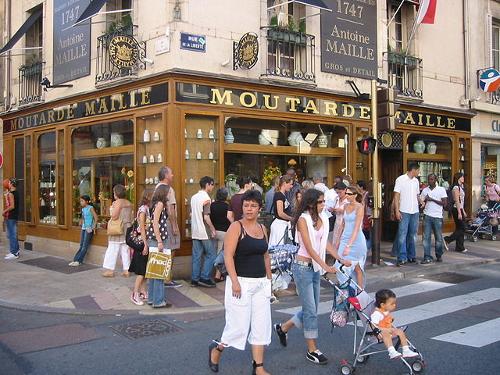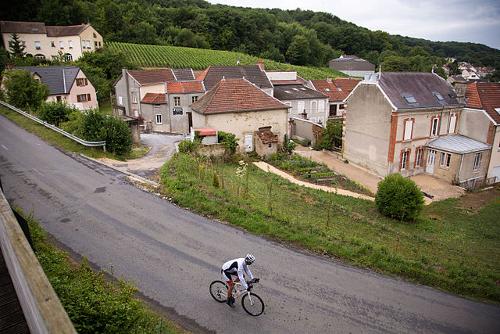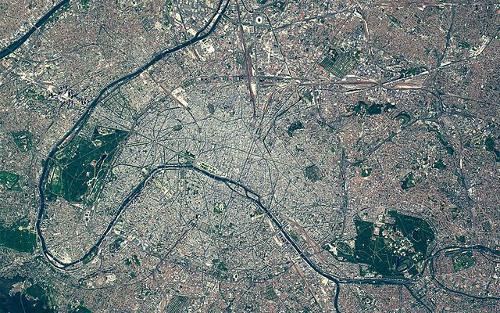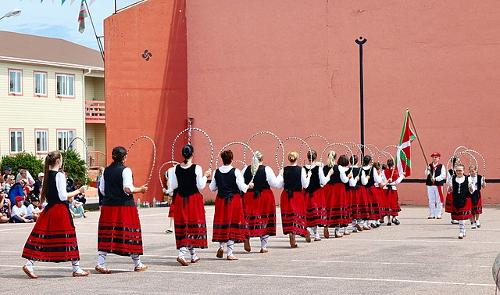FRANCE
Population

Population

Cities in FRANCE
| Aix-en-provence | Amiens | Avignon |
| Bordeaux | Dijon | Grenoble |
| Le havre | Lille | Lyon |
| Nice | Paris |
Popular destinations FRANCE
| Alsace | Ardeche | Auvergne |
| Brittany | Burgundy | Cevennes |
| Corsica | Cote d'azur | Dordogne |
| Jura | Languedoc-roussillon | Loire valley |
| Lot | Normandy | Picardy |
| Provence |
Population
Mainland France had 68,4 million inhabitants in 2024, making France second in the European Union after Germany.
The population of France increased sharply after 1945 due to, among other things, advances in health care and the expansion of social services. Until the beginning of the 20th century, the population growth was limited and between the two world wars the population even decreased.
| advertentie |
|
France: Villas & holiday homes |
 French people shopping in Dijon, FrancePhoto: Unknown, CC 3.0 Unported no changes made
French people shopping in Dijon, FrancePhoto: Unknown, CC 3.0 Unported no changes madePopulation growth declined sharply from the mid-1960s, but has seen a slight increase since 1977. In 2024, the birth rate was 10.9 per 1000 inhabitants and the death rate 10 per 1000 inhabitants. Life expectancy at birth was 85.5 years for women and 79.8 years for men in 2024.
In addition to the natural population increase, a significant part of the increase can be attributed to the immigration of foreigners (in particular Algerians, Portuguese, Italians, Spaniards, refugees from (French) Africa and Moroccans). Most immigrants (85%) live in Paris and the surrounding area, in the Rhône-Alpes region and on Corsica.
The population growth was 0.2% in 2017. Population growth varies greatly from region to region. For example, the population in Northern France traditionally grows much faster than in the South of France.
The population composition in 2024 as a percentage is as follows:
0-14 years 17.3%
15-65 years 60.7%
65+ 22% Rural France is sparsely populatedPhoto: Victor Grigas CC 4.0 International no changes made
Rural France is sparsely populatedPhoto: Victor Grigas CC 4.0 International no changes made
France is relatively sparsely populated and even one of the least populated countries in Europe. The average population density was 122 inhabitants per km2 in 2024, but the population is very unevenly distributed. Sparsely populated areas are the Massif Central, the plateaus of the Paris Basin, Les Landes and the high mountains. Densely populated areas are the departments of Ille-de-Paris, Nord, Rhône, Val de Marne and Hauts-de-Seine. These are areas characterized by intensive agriculture, but mainly industrial and urban zones.
In 2024, 82% of the population lived in an urban environment. In 1973 this was still 73%. Many people choose to live in Paris. The formation of "metropoles d'équilibre" such as Nantes, Lille, Strasbourg, Marseille, Bordeaux, Toulouse and Lyon has attempted to restore balance in France and slow the growth of Paris. Satellite photo of densely populated ParisPhoto: Axelspace Corporation CC 4.0 International no changes made
Satellite photo of densely populated ParisPhoto: Axelspace Corporation CC 4.0 International no changes made
The largest cities in France in 2024 are:
Paris 11.2 million
Lyon 1.8 million
Marseille 1.1 million
Lille 1.1 million
The Basque Country is mostly on the Spanish side of the Pyrenees, and only one in ten of the 500,000 people who speak Basque has French nationality. Although the Basques are culturally and ethnically linked, the Spanish and French Basques have different backgrounds. The Spanish Basque Country was rapidly industrialized and the Basques soon played an important role in the economy and politics. French Basques in traditional costumes in Saint-Pierre-et-Miquelon, FrancePhoto: Marie Cuvelier CC 4.0 International no changes made
French Basques in traditional costumes in Saint-Pierre-et-Miquelon, FrancePhoto: Marie Cuvelier CC 4.0 International no changes made
Comprising the departments of Soule, Labourd and Basse Navarre, the French Basque Country was a backward area of farmers and fishermen until tourism emerged in the nineteenth century. Although almost all acts of violence by the Spanish Basques, there are sometimes demonstrations and actions in French cities.
Sources
Bailey, R. / Frankrijk
Kosmos-Z&K
France
Lonely Planet
Frankrijk
Van Reemst
CIA - World Factbook
BBC - Country Profiles
Last updated June 2025Copyright: Team The World of Info